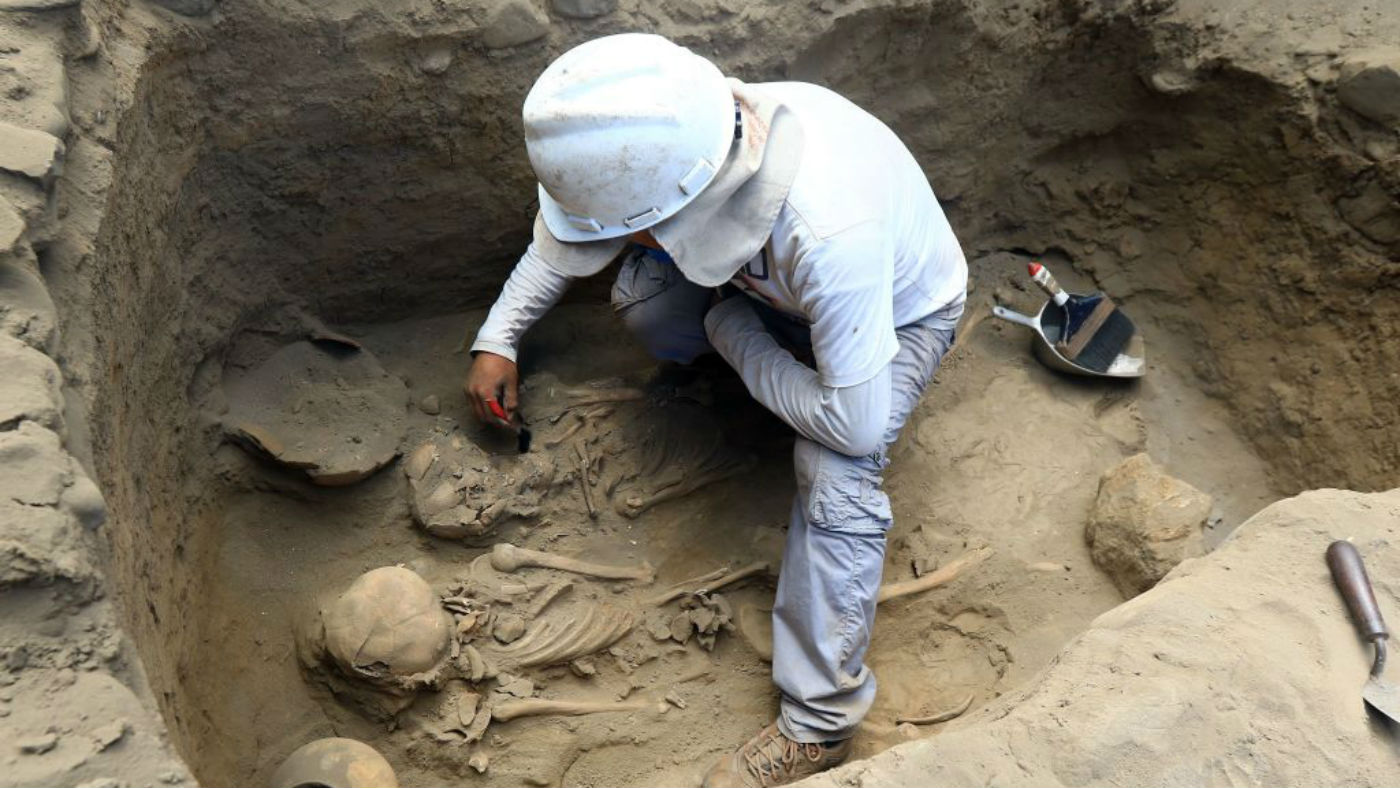Largest child sacrifice in history ‘was response to El Nino’
Bodies of 140 children found at 15th century archaeological site in Peru

A free daily email with the biggest news stories of the day – and the best features from TheWeek.com
You are now subscribed
Your newsletter sign-up was successful
A mass sacrifice of 140 children in Peru was carried out in an attempt to stop extreme weather events resulting from El Nino, scientists believe.
Archaeologists have been excavating the burial ground - known as Huanchaquito-Las Llamas - on the South American country’s northern coast since 2011.
They have also unearthed the remains of around 200 llamas at the site, which is believed to date from 1450AD, when the region was ruled by the Chimu Empire.
The Week
Escape your echo chamber. Get the facts behind the news, plus analysis from multiple perspectives.

Sign up for The Week's Free Newsletters
From our morning news briefing to a weekly Good News Newsletter, get the best of The Week delivered directly to your inbox.
From our morning news briefing to a weekly Good News Newsletter, get the best of The Week delivered directly to your inbox.
The llamas, all less than 18 months old, were buried facing east toward the Andes Mountains, while the children faced west toward the coast.
Many of the children were buried in groups of three, with cotton shrouds, red painted faces, and some in headdresses.
According to The New York Times, DNA evidence shows that the victims were both boys and girls, aged between five and 14, and came from across the Chimu state.
Archaeologist Gabriel Prieto, of the Nation University of Trujillo, and his colleagues found a cut on the sternums of nearly all the children still possessing the complete bone, suggesting their chests were cut open and hearts ripped out, reports Forbes.
A free daily email with the biggest news stories of the day – and the best features from TheWeek.com
“Many of the children had visible spreading and displacement of the ribs, indicating the chest was opened forcefully. Heart removal is a likely motivation,” said Prieto.
Researchers believe that the mass sacrifice was prompted by an extreme El Nino weather event. A preserved mud layer on top of the desert sands that covered the ritual site is thought to have been the result of a period of heavy rain like those caused by El Nino, a natural warming of the Pacific Ocean.
“Such a deluge would have devastated the Chimu state, flooding crops, killing fish and sweeping people away,” says the Times.
John Verano, an anthropologist at Tulane University and co-author of the new research paper, published in the journal PLoS One, says the sacrifice appears to have been an attempt to stop the “torrential rains, flooding and mudflows”.
“The picture that starts to emerge is that under conditions of severe climatic disruption, the sacrifice of children may have been the most powerful means of communication with the supernatural,” agrees Haagen Klaus, a bioarcheologist from George Mason University who was not involved in the study.
Bioarchaeologist Celeste Gagnon, who works at a nearby site in Peru, told Forbes that the importance of the unusually well-preserved site goes what it reveals about human sacrifices in the past.
“Continued analysis of the amazingly well-preserved biological and cultural remains will yield new data for years,” she said.